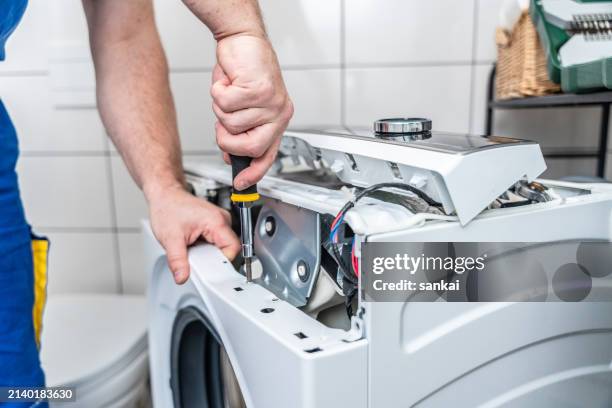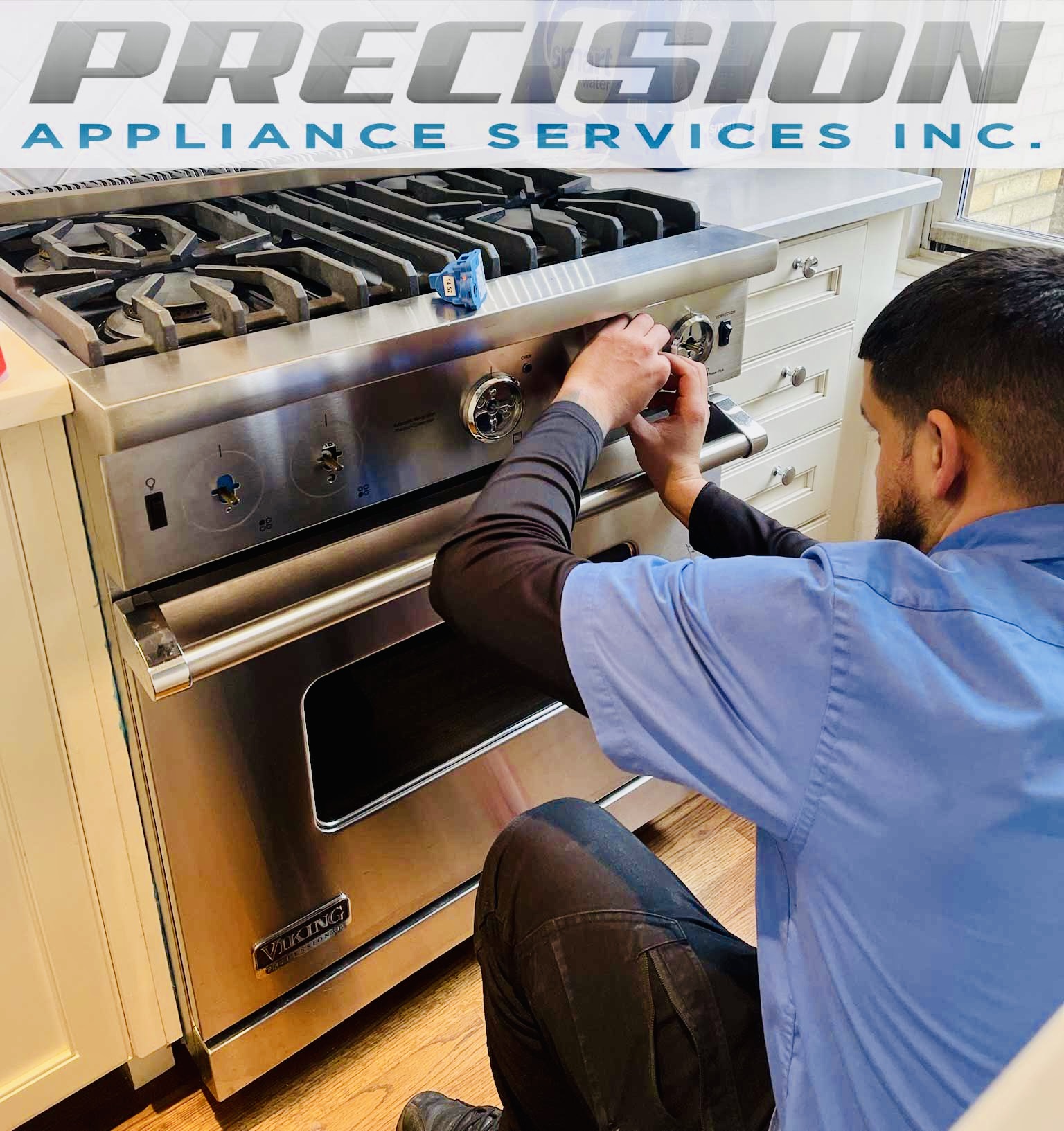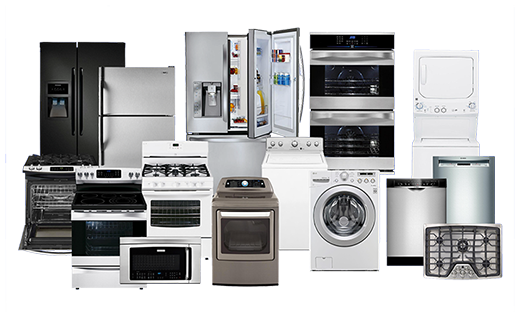Can You Use Generic Appliance Parts? – Dependable Refrigeration & Appliance Repair Service Washing Machine Repair
Can You Use Generic Appliance Parts? – Dependable Refrigeration & Appliance Repair Service Washing Machine Repair
Blog Article
The Ultimate Guide to Recognizing Home Appliance Fixing in your home
When your refrigerator quits cooling or your oven refuses to heat, it can really feel frustrating. Recognizing appliance fixing at home can save you money and time. You'll learn to acknowledge symptoms, make use of necessary tools, and comply with a methodical troubleshooting procedure. However before you begin, there are critical safety precautions you need to take into account. What are one of the most usual problems, and exactly how can you repair them? Let's check out the fundamentals.
Usual Home Appliance Troubles and Their Signs
When your appliances begin acting up, it's important to identify the indicators at an early stage. Ignoring them can result in larger problems and expensive repair services. For instance, if your fridge isn't cooling down effectively, you may see cozy areas or condensation forming. This can indicate a falling short compressor or an obstructed vent.Your dish washer might show problems via dirty dishes or uncommon sounds throughout cycles. If you listen to grinding or clanking, it's time to investigate.A washing device that will not rotate or drain pipes can leave you with soaked laundry, recommending a clogged up drain or a malfunctioning pump.Lastly, if your oven's temperature level appears off or it takes forever to preheat, you could be managing a damaged thermostat. By remaining sharp to these symptoms, you can deal with concerns before they escalate right into significant fixings.
Necessary Tools for Appliance Repair Service
When you're dealing with device repair work in the house, having the right tools is vital. Standard hand devices like screwdrivers and pliers will assist you take apart and take care of numerous devices, while electric screening gadgets assure you're working securely with circuitry. Allow's look at what you require to get started on your repair work journey.
Fundamental Hand Tools
Having the right devices is essential for efficient home appliance fixing at home. Start with a trustworthy screwdriver set, including both flathead and Phillips types, as screws are typical in home appliance setting up. Pliers are also vital; they aid with gripping, twisting, and reducing cords or small elements. A pair of needle-nose pliers can get to difficult situations quickly. You'll require a good flexible wrench for tightening up or loosening up nuts and screws. An energy knife is useful for cutting with packaging or insulation. Don't fail to remember a durable workbench or surface to securely organize your devices and parts. With these basic hand devices, you'll be well-prepared to tackle most device repair work that come your way.
Electric Testing Instruments
Alongside standard hand tools, electric testing tools play an important duty in home appliance repair. These devices help you detect electrical problems and guarantee appliances work securely. A multimeter is essential; it determines voltage, current, and resistance, permitting you to identify issues quickly. A non-contact voltage tester is one more must-have, letting you identify live cables without making direct call, enhancing your safety and security. Secure meters are great for gauging current circulation in cords without detaching them, conserving you time and initiative. Additionally, circuit testers can promptly check if outlets are working properly. By making use of these devices, you'll enhance your troubleshooting process and boost your repair work abilities, making device upkeep a lot much easier.
Step-by-Step Guide to Diagnosing Home Appliance Issues
When your device breaks down, it can be frustrating, however identifying the concern does not need to be frustrating. You'll find out to identify common issues and apply efficient repairing techniques. Allow's stroll with the actions to get your home appliance back in functioning order.
Usual Device Troubles

Troubleshooting Techniques Explained

Repairing Major Cooking Area Appliances: A Closer Look
Have you ever before asked yourself exactly how to deal with usual problems with your kitchen appliances? Fixing major cooking area home appliances like refrigerators, ovens, and dish washers can be simpler than you think. Beginning by recognizing the issue-- whether it's a fridge not cooling down or an oven that will not heat. Frequently, a simple reset or inspecting the source of power can address the issue.For refrigerators, tidy the condenser coils and check the door seals. If your oven's not heating, check the home heating element and thermostat. Dishwashers could just require a tidy filter or a reset to get them back in activity. Always unplug the device before diving into repairs to ensure your safety.Don' t neglect to seek advice from the user handbook for specific fixing pointers connected to your version. With a little bit of persistence and the right devices, you can confidently deal with device repairs and save cash at the same time!

Fixing Laundry Equipments: Tips and Techniques
When your washing home appliances begin acting up, it can really feel overwhelming, however troubleshooting them doesn't need to be a trouble. Start by inspecting the power supply. Validate the appliance is connected in and the electrical outlet is working. Next off, inspect the door or lid button; a defective button can avoid the equipment from operating.For washers, if it's not rotating, check for out of balance lots. Redistributing the clothing could solve the concern. If your dryer isn't home heating, tidy the dust filter and check the vent for blockages.Listen for unusual sounds; they can suggest an issue. If your home appliance is leaking, examine the hose pipes for splits or loosened links. File any kind of mistake codes displayed on digital displays, as they can direct you in recognizing the concern. Finally, speak with the customer manual for specific repairing ideas associated with your version.
Safety Precautions to Take During Repair works
Before you start any appliance repair work, it's necessary to focus on security to stop crashes or injuries. Initially, disconnect the home appliance or switch off the circuit breaker to ensure no power reaches it while you work. Use insulated tools to lessen the danger of electrical shock. Put on safety goggles and handwear covers to protect yourself from sharp edges or debris (Lg Dryer repair near me Dependable Refrigeration & Appliance Repair Service).Make specific your work area is tidy and well-lit, so you can see what you're doing. Maintain children and pets away from the location to prevent distractions and potential hazards. If you're read the full info here taking care of gas appliances, be additional careful; check for leakages prior to proceeding.Take your time, and don't rush through fixings. If you feel unpredictable about any kind of step, it's far better to pause and research study than to presume. Complying with these safety measures will certainly help produce a more secure atmosphere for your DIY device repair job
When to Call a Specialist for Aid
Just how do you know if it's time to call in an expert for device fixings? If you've attempted fundamental troubleshooting without success, it's a clear sign. If your home appliance still will not start or shows unusual noises after resetting it, don't be reluctant to look for expert help.When you notice leaks, smoke, or shedding smells, focus on security and call a professional promptly. These issues can cause even more substantial damage or present dangers to your home.Also, if your home kenmore refrigerator repair near me appliance is under warranty, contacting a specialist is frequently the finest course. They can guarantee that repair services won't void your warranty, saving you money in the lengthy run.Finally, if you're unsure or awkward with complicated repair work, it's important to leave it to the specialists. Bear in mind, tackling complicated problems without the ideal know-how can cause pricey blunders. Trust fund a specialist when unsure!
Regularly Asked Questions
Exactly How Can I Avoid Appliance Troubles in the Future?
To stop appliance issues in the future, you ought to perform normal upkeep, check for damage, tidy filters, and avoid overloading. Staying proactive will assist extend their life-span and keep them running efficiently.
What Are the Many Usual Do It Yourself Home Appliance Repair Service Mistakes?
You could forget security preventative measures, miss fixing actions, or utilize wrong tools when trying DIY home appliance repair services. Hurrying the process or overlooking manufacturer guidelines can cause more substantial concerns and pricey blunders. Keep person and notified!
Exactly how Do I Know if a Component Needs Replacement?
You can tell if a component needs substitute by looking for unusual noises, leaks, or irregular efficiency. If the appliance battles to run correctly or reveals noticeable damages, it's likely time for a substitute.
Can I Make Use Of Generic Parts for Home Appliance Repairs?
Yes, you can utilize common parts for appliance fixings, but establish they're compatible - Washer dryer repair service Dependable Refrigeration. Generic parts may save you money, however they can impact efficiency or longevity, so consider your choices very carefully before deciding
What Warranties Cover Home Appliance Repairs?
Most device guarantees cover fixings for manufacturing defects, however they often omit damage from abuse. Check your guarantee terms very carefully, as some might call for using certified professionals and original components for insurance coverage to remain legitimate.
Report this page